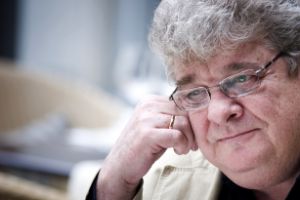Lecture
Jesper Juul
What is the nature of the children in the world?
Introduction: Manfred Lahnstein

Jesper Juul © Vanja Vucovic
Are children a matter for regret or should one envy the chance to be a child today? There has never been greater freedom for personal development than there is today, but there has also never been as much pressure to achieve. Along with persistently disappointing PISA results, news stories of teenagers drinking themselves into comas and a general undermining of parents, children have become a problem whose solution has widespread social significance. But what might this be – in old-fashioned discipline, or in the removal of any kind of upbringing?
Neither one nor the other is Jesper Juul’s answer. Children are born with social and emotional competence, but they require their parents’ help to develop. In 1979 he founded the Kempler Institute for Family Therapy. This was joined in 2007 by Familylab, an international advisory service for parents.
Jesper Juul (*1948) has produced numerous books including The Competent Child and Parent Coaching and writes regularly for Scandinavian and German print media. His theories constitute a paradigm shift in dealing with families, children, young people and grown ups. For him the basis of every parent-child relationship is the equal status of the child, its responsibility and space for it to participate in decision making. Finding out who the child is is one of the parents’ most important tasks.
Juul believes the future of our societies will be determined by the ability of parents to take responsibility for their own actions and for the relationships between themselves and their children. He articulates this in the form of family workshops, which are spaces for experimenting and getting to know each other. In this way Juul wishes to facilitate a form of child development whose aim is the social health and healthy soul of the child. “They have to be able to express their nature in the world” is Juul’s thesis for mastering their nature as children.